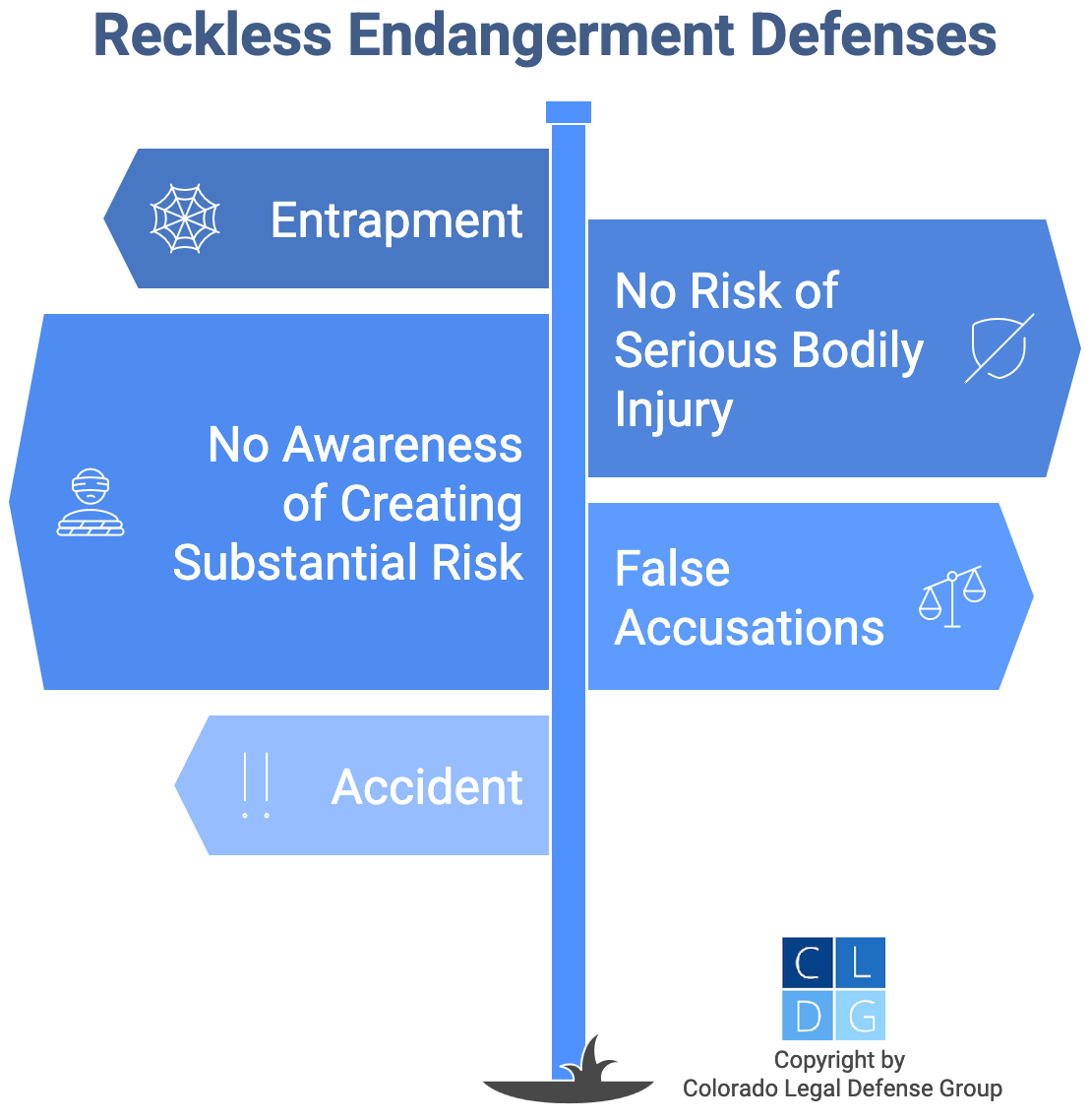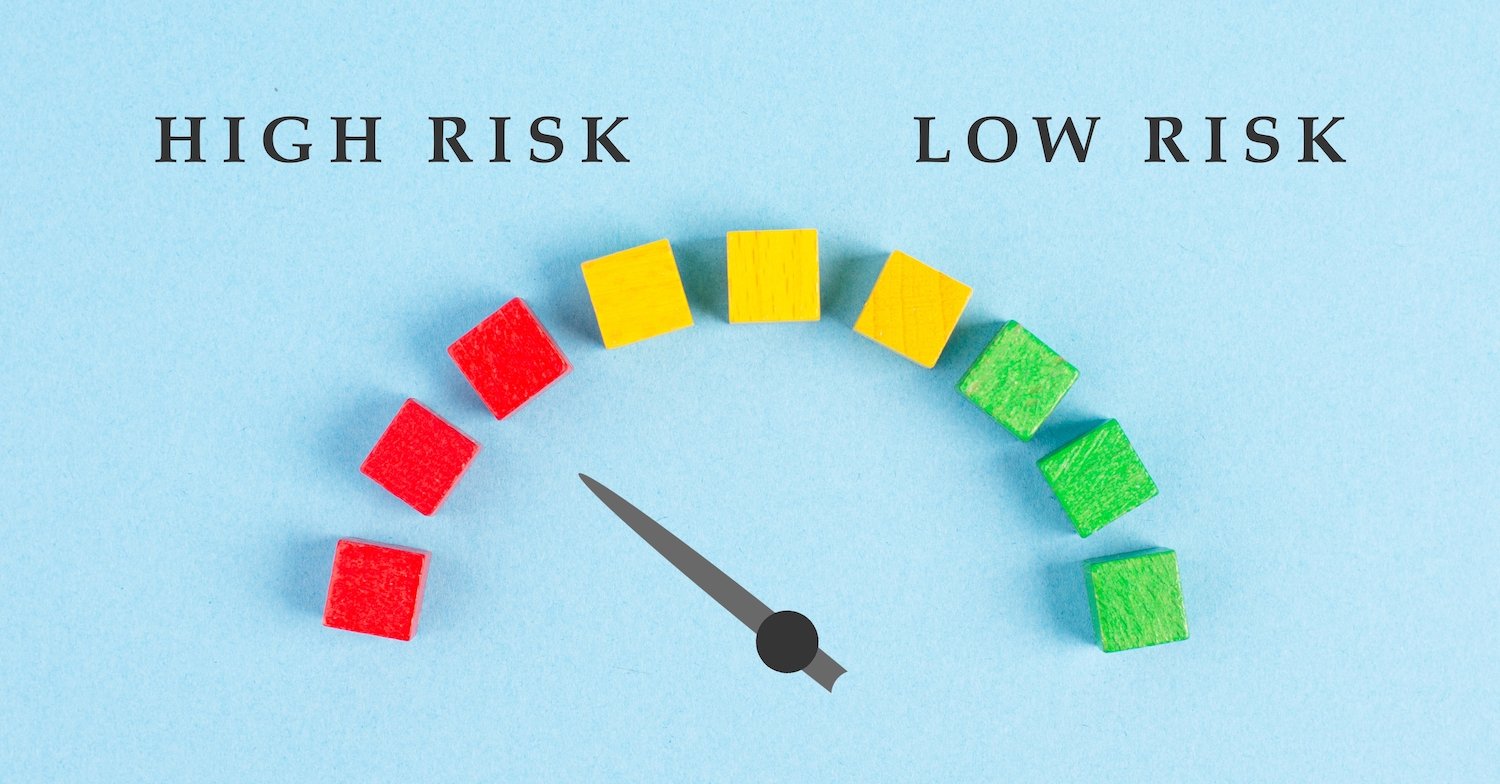Colorado Revised Statute § 18-3-208 prohibits reckless endangerment, which is “conduct which creates a substantial risk of serious bodily injury to another person.”
As a class 2 misdemeanor, reckless endangerment carries up to 120 days in jail and/or up to $750 in fines.
An example of reckless endangerment is discarding a lit cigarette on a pile of dry grass in front of an occupied house. Dropping the cigarette on dry grass is reckless since there is a significant risk it would start a fire, and it is endangerment because the fire could seriously hurt the occupants inside the house.
 In this article, our Denver criminal defense attorneys will address the following key issues regarding Colorado reckless endangerment laws:
In this article, our Denver criminal defense attorneys will address the following key issues regarding Colorado reckless endangerment laws:
- 1. Elements of CRS 18-3-208
- 2. Probation
- 3. Defenses
- 4. Immigration Consequences
- 5. Record Seals
- Frequently Asked Questions
- Additional Reading
1. Elements of CRS 18-3-208
To convict you of reckless endangerment in Colorado, prosecutors have to prove beyond a reasonable doubt these two elements of the crime:
- You recklessly engaged in conduct, and
- The conduct created a substantial risk of serious bodily injury to another.1
“Recklessness” Meaning
Reckless conduct is a gross deviation from the standard of care that a reasonable person would exercise. You are reckless when you consciously disregard a significant risk you created.
For purposes of determining whether your conduct was reckless, the jury may take into account both:
- Your personal knowledge and experience (which is a subjective standard) and
- What a reasonable person would have understood under the circumstances (which is an objective standard).2
“Serious Bodily Injury” Meaning
Serious bodily injury means physical harm that involves substantial risk of death or either:
- serious permanent disfigurement,
- protracted loss or impairment of the function of any body part or organ,
- fractures, and/or
- second- or third-degree burns.3

Reckless endangerment is acting in a highly careless way, and it creates a risk that could harm other people.
2. Probation
If you are convicted of reckless endangerment in Colorado, the judge may grant you probation in lieu of some or all of the 120-day maximum jail sentence. Whether you get probation or not, you also face up to $750 in fines.4
(Note that the maximum jail sentence increases to one year if the victim was a mental health professional on duty at the Department of Human Services.)5

Accident is a defense to CRS 18-3-208 charges.
3. Defenses
Here at Colorado Legal Defense Group, we have represented literally thousands of people charged with offenses stemming from risky behavior such as reckless endangerment. In our experience, the following five defenses have proven very effective with prosecutors, judges, and juries at getting CRS 18-3-208 charges reduced or dismissed.
- Your conduct was accidental, so your actions did not rise to the level of recklessness.
- There was no risk of serious bodily injury from your conduct.
- You were unaware that your behavior was creating a substantial risk, and a reasonable person in the same position would not have been aware of the risk.
- You were falsely accused by someone, possibly out of anger, revenge, or a mistake.
- The police officers committed misconduct, such as entrapment, an unlawful search and seizure, or coercion of a confession.
Self-defense is not a valid defense to charges of reckless endangerment. Self-defense requires you to act justifiably, while recklessness requires you to act with conscious disregard of an unjustifiable risk: They are incompatible states of mind.6

False accusations is a potential defense to reckless endangerment charges.
4. Immigration Consequences
The law is unclear whether a reckless endangerment conviction qualifies as a deportable offense.
Any non-citizen facing criminal charges in Colorado should retain an attorney immediately. The attorney may be able to persuade the district attorney to dismiss or reduce the charge to a non-deportable offense.
Learn more about the criminal defense of immigrants.
5. Record Seals
Reckless endangerment convictions in Colorado may be sealed from your criminal record two years after the case ends. Though there is no wait to petition for a record seal if your charge gets dismissed.7
Learn about how to get a criminal record seal in Colorado.

Reckless endangerment convictions are sealable two years after the case ends.
Frequently Asked Questions
What is the difference between reckless endangerment and accidentally hurting someone?
Reckless endangerment requires that you consciously disregarded a significant risk you created – it is not just an accident. You must have been aware of the substantial risk but chose to act anyway.
If your conduct was truly accidental and you had no awareness of creating risk, this can be a valid defense against reckless endangerment charges.
How long will I go to jail if convicted of reckless endangerment in Colorado?
Reckless endangerment is a class 2 misdemeanor carrying up to 120 days in jail and/or up to $750 in fines. However, the judge may grant you probation instead of some or all of the jail time.
The maximum jail sentence increases to one year if the victim was a mental health professional on duty at the Department of Human Services.
Can I get a reckless endangerment conviction removed from my record?
Yes, reckless endangerment convictions in Colorado can be sealed from your criminal record two years after the case ends. If your charges are dismissed instead of resulting in a conviction, you can petition for a record seal immediately with no waiting period.
Will a reckless endangerment conviction affect my immigration status?
The law is unclear whether a reckless endangerment conviction qualifies as a deportable offense. If you are not a U.S. citizen, you should hire an attorney immediately who may be able to convince the prosecutor to dismiss or reduce the charge to a non-deportable offense to protect your immigration status.
Additional Reading
For more in-depth information, refer to these scholarly articles:
- Criminalizing Endangerment – Louisiana Law Review.
- Polluters as Perpetrators of Person Crimes: Charging Homicide, Assault, and Reckless Endangerment in the Face of Environmental Crime – Journal of Environment Law & Litigation.
- Offenses Causing Danger – American Journal of Comparative Law.
- Reckless endangerment of a child: How does that differ from child abuse and neglect? – Connecticut Law Tribune.
- Varieties of intention, criminal attempts and endangerment – Legal Studies.
Also see our related articles on reckless driving (CRS 42-4-1401), shooting from a public road (CRS 33-6-126) and Colorado fireworks laws (CRS 12-28-110).
Legal References
- CRS 18-3-208 – Reckless Endangerment.
A person who recklessly engages in conduct that creates a substantial risk of serious bodily injury to another person commits reckless endangerment, which is a class 2 misdemeanor.
See, for example, People v. Fergus-Jean (Colo.App. 2024) No. 22CA1068 (unpublished). - People v. Hall (2000) 999 P.2d 207.
- Colorado Revised Statute 18-1-901(3)(p).
- CRS 18-3-208; see also People v. Berner (Colo.App. 1979) 600 P.2d 112; People v. Cauley (Colo. App. 2001) 32 P.3d 602; People v. Hall (Colo. App. 2002) 59 P.3d 298.
- CRS 18-3-208; CRS 18-1.3-501. Prior to March 1, 2022, reckless endangerment was a class 3 misdemeanor carrying up to 6 months in jail and/or $50 to $750 in fines. SB21-271.
- People v. Pickering (Colo. 2011) 276 P.3d 553.
- CRS 24-72-703 – 708.
